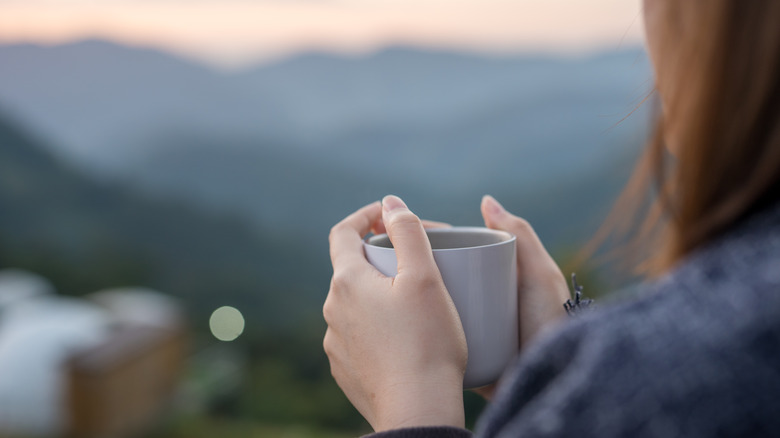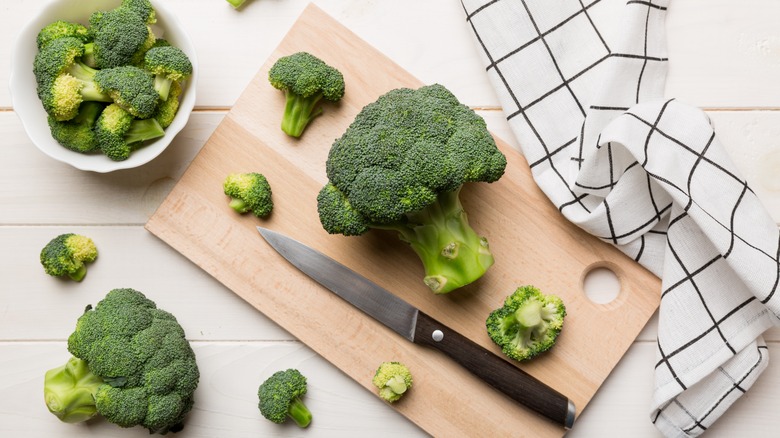The Food That Will Help You Fall Asleep After An Evening Coffee
While some people may be able to drink a cup of coffee at any time — including right before bed — and still sleep like a baby, they are few and far between. The reason coffee is a popular morning beverage is because it has the tendency to make us feel more awake. Coffee contains a natural substance known as caffeine, which acts as a stimulant in the body, according to the American Academy of Sleep Medicine (AASM). The way it does this is by blocking adenosine receptors. Adenosine is a substance that makes us feel sleepy by latching onto specific receptors in the body. If these receptors are blocked by caffeine, adenosine cannot be metabolized in the same way.
When it comes to determining whether a cup of coffee will interfere with your sleep, it's important to note how much caffeine is present in the beverage and the number of hours it is consumed before bed (via AASM). Caffeine has a half-life of anywhere between three and five hours, meaning just half of the substance is processed and eliminated by the body during that time. If you drink one cup of coffee, which is equal to about 95 milligrams, you're looking at more than 12 hours to get rid of every last trace of caffeine.
If you've had a cup of coffee late in the day and are worried it might interfere with your sleep, there are ways you can fast-track the caffeine elimination, specifically using this food.
Broccoli can help break down caffeine
Scientists have discovered that broccoli can help speed up the caffeine break-down process in our body, which is great news for anyone who drinks a cup of coffee too late in the day or who would like to enjoy an evening shot of espresso with their dessert with minimal sleep interference (per MPG Food).
In a 2007 study published in the journal Current Drug Metabolism, participants were given around five and a half cups of chopped broccoli and 100 milligrams of caffeine during testing. The results found that consuming broccoli activated CYP1A2 enzymes in the liver, which are important in caffeine metabolism. Another study published in the same journal in 2020 conducted a meta-analysis looking at trials that involved drug metabolism and the consumption of specific foods, including cruciferous vegetables like broccoli. This study confirmed that these vegetables activated the liver enzyme CYP1A2 by 20-40%.
Note that eating broccoli won't necessarily put you to sleep if you've had a late cup of coffee. However, if you're worried about tossing and turning when it comes time for bed, give it a try and see if you get to sleep faster. In addition to munching on some broccoli to speed up the caffeine breakdown in your body, you can add in some sleep-inducing foods, such as almonds, which contain the circadian-rhythm-regulating hormone melatonin, according to Medical News Today. Chamomile tea can also set you up for a good night's rest.


